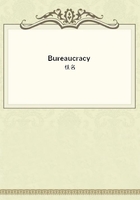
第5章 THE RABOURDIN HOUSEHOLD(4)
His ideas were both generous and ambitious; few officials have not conceived the like; but among officials as among artists there are more miscarriages than births; which is tantamount to Buffon's saying that "Genius is patience."Placed in a position where he could study French administration and observe its mechanism, Rabourdin worked in the circle where his thought revolved, which, we may remark parenthetically, is the secret of much human accomplishment; and his labor culminated finally in the invention of a new system for the Civil Service of government. Knowing the people with whom he had to do, he maintained the machine as it then worked, so it still works and will continue to work; for everybody fears to remodel it, though no one, according to Rabourdin, ought to be unwilling to simplify it. In his opinion, the problem to be resolved lay in a better use of the same forces. His plan, in its simplest form, was to revise taxation and lower it in a way that should not diminish the revenues of the State, and to obtain, from a budget equal to the budgets which now excite such rabid discussion, results that should be two-fold greater than the present results. Long practical experience had taught Rabourdin that perfection is brought about in all things by changes in the direction of simplicity. To economize is to simplify. To simplify means to suppress unnecessary machinery; removals naturally follow. His system, therefore, depended on the weeding out of officials and the establishment of a new order of administrative offices. No doubt the hatred which all reformers incur takes its rise here. Removals required by this perfecting process, always ill-understood, threaten the well-being of those on whom a change in their condition is thus forced. What rendered Rabourdin really great was that he was able to restrain the enthusiasm that possesses all reformers, and to patiently seek out a slow evolving medium for all changes so as to avoid shocks, leaving time and experience to prove the excellence of each reform. The grandeur of the result anticipated might make us doubt its possibility if we lose sight of this essential point in our rapid analysis of his system. It is, therefore, not unimportant to show through his self-communings, however incomplete they might be, the point of view from which he looked at the administrative horizon. This tale, which is evolved from the very heart of the Civil Service, may also serve to show some of the evils of our present social customs.
Xavier Rabourdin, deeply impressed by the trials and poverty which he witnessed in the lives of the government clerks, endeavored to ascertain the cause of their growing deterioration. He found it in those petty partial revolutions, the eddies, as it were, of the storm of 1789, which the historians of great social movements neglect to inquire into, although as a matter of fact it is they which have made our manners and customs what they are now.
Formerly, under the monarchy, the bureaucratic armies did not exist.
The clerks, few in number, were under the orders of a prime minister who communicated with the sovereign; thus they directly served the king. The superiors of these zealous servants were simply called head-clerks. In those branches of administration which the king did not himself direct, such for instance as the "fermes" (the public domains throughout the country on which a revenue was levied), the clerks were to their superior what the clerks of a business-house are to their employer; they learned a science which would one day advance them to prosperity. Thus, all points of the circumference were fastened to the centre and derived their life from it. The result was devotion and confidence. Since 1789 the State, call it the Nation if you like, has replaced the sovereign. Instead of looking directly to the chief magistrate of this nation, the clerks have become, in spite of our fine patriotic ideas, the subsidiaries of the government; their superiors are blown about by the winds of a power called "the administration," and do not know from day to day where they may be on the morrow. As the routine of public business must go on, a certain number of indispensable clerks are kept in their places, though they hold these places on sufferance, anxious as they are to retain them.
Bureaucracy, a gigantic power set in motion by dwarfs, was generated in this way. Though Napoleon, by subordinating all things and all men to his will, retarded for a time the influence of bureaucracy (that ponderous curtain hung between the service to be done and the man who orders it), it was permanently organized under the constitutional government, which was, inevitably, the friend of all mediocrities, the lover of authentic documents and accounts, and as meddlesome as an old tradeswoman. Delighted to see the various ministers constantly struggling against the four hundred petty minds of the Elected of the Chamber, with their ten or a dozen ambitious and dishonest leaders, the Civil Service officials hastened to make themselves essential to the warfare by adding their quota of assistance under the form of written action; they created a power of inertia and named it "Report."Let us explain the Report.